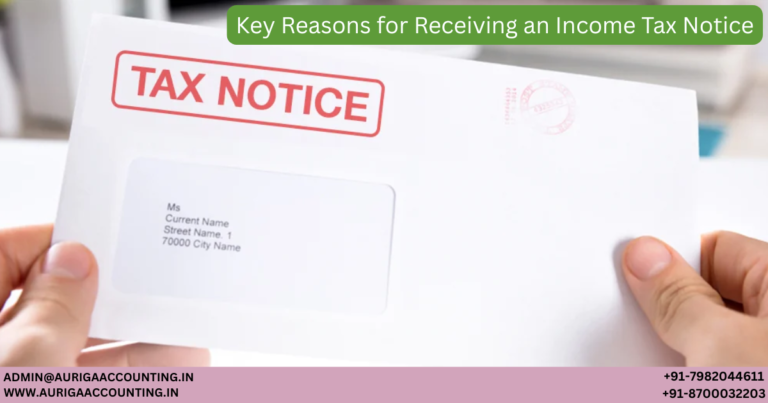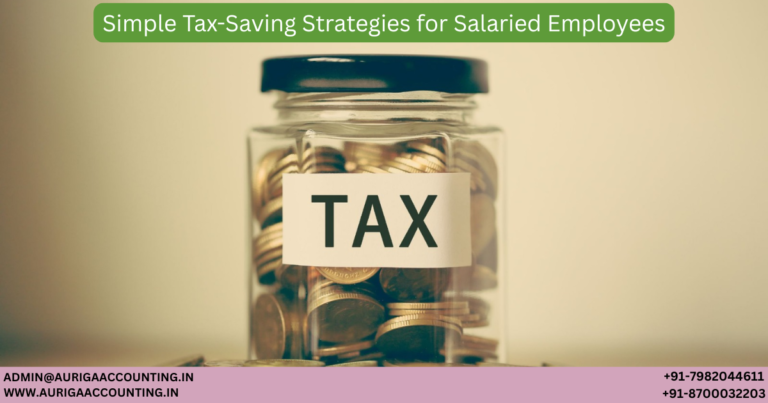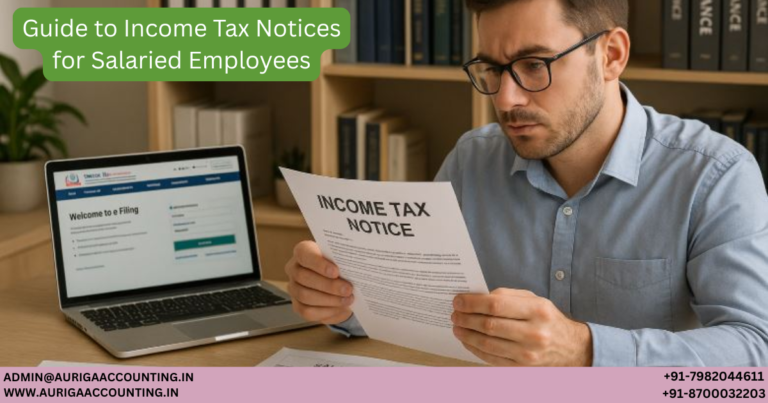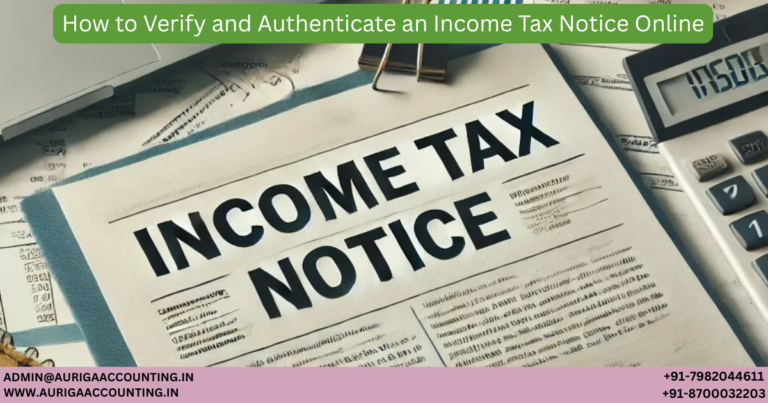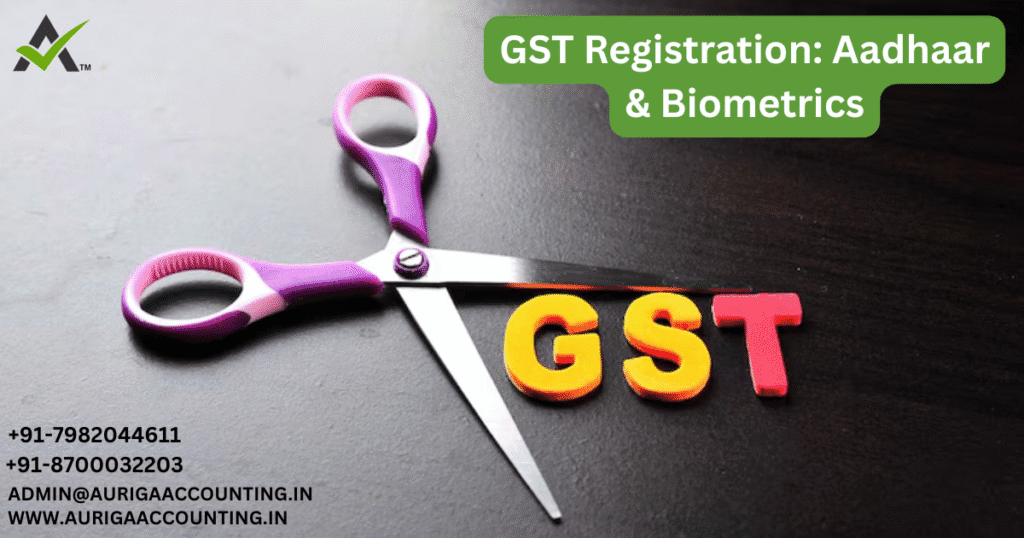
GST Registration: Aadhaar & Biometrics
Introduction
ToggleThe GST registration process in India has been strengthened under Rule 8 of the CGST Rules, 2017, with enhanced authentication requirements to boost security and curb fraudulent registrations. According to the latest advisory, applicants must complete either Aadhaar authentication or biometric verification along with document verification at an authorized GST Suvidha Kendra (GSK). Failure to comply within the specified timeline may lead to application rejection. This article offers a detailed, step-by-step guide on Aadhaar and Biometric Verification for GST registration.
New Update: Biometric Aadhaar Authentication for GST Applicants in Sikkim (May 2025)
Starting May 1, 2025, GSTN has implemented biometric Aadhaar authentication and in-person document verification for select GST registration applicants in Sikkim. This requirement is based on risk assessment as per Rule 8 of the CGST Rules, 2017.
Who Must Comply:
Applicants flagged by the system will be required to undergo biometric verification and present original registration documents for validation.
How the Process Works:
Applicants will receive an email with either a link for standard OTP-based Aadhaar authentication or instructions to book an appointment at a designated GST Suvidha Kendra (GSK) for biometric verification.
Booking the Appointment:
If biometric verification is required, applicants must schedule their visit to the assigned GSK using the provided link.
Documents to Bring:
Carry your Aadhaar card, PAN, original registration documents, and appointment confirmation to the GSK.
Important:
Verification must be completed within the stipulated timeframe. Failure to do so will result in no Application Reference Number (ARN) being generated, causing delays in the GST registration process
Advisory on Rule 8 of the CGST Rules, 2017: Updated Verification Requirements for GST Registration
The Goods and Services Tax Network (GSTN) has issued an advisory outlining the revised GST registration process under Rule 8 of the CGST Rules, 2017. According to the new guidelines, applicants are required to complete either Aadhaar authentication or biometric verification along with document validation at a designated GST Suvidha Kendra (GSK). This enhancement is designed to strengthen security, curb fraudulent registrations, and simplify the overall registration procedure. Failure to complete the mandated authentication within the prescribed timeframe may result in application rejection. Taxpayers are encouraged to adhere to these updated requirements to ensure a hassle-free GST registration process.
New Update: Biometric Aadhaar Authentication for GST in Uttar Pradesh (March 2025)
Key Highlights:
Starting March 15, 2025, GSTN has implemented biometric Aadhaar authentication for GST registration applicants in Uttar Pradesh. Based on risk assessment, some applicants will be required to visit a GST Suvidha Kendra (GSK) for biometric verification and document validation.
Biometric Verification: Selected applicants will be flagged to complete biometric Aadhaar authentication along with document checks.
Appointment Booking (From March 18, 2025): Applicants must schedule an appointment at the designated GSK using the email link if biometric verification is required.
Mandatory Timeline: Verification must be completed within the specified timeframe to avoid delays.
Non-Compliance: Failure to complete biometric authentication on time will result in the non-generation of the Application Reference Number (ARN), causing delays in GST registration
New Update: Biometric Aadhaar Authentication for GST in Assam (April 2025)
Effective April 1, 2025, GSTN has introduced biometric Aadhaar authentication for GST registration applicants in Assam. Based on risk assessment, some applicants may be required to undergo biometric verification and document validation at a designated GST Suvidha Kendra (GSK).
Biometric Verification Requirement: Selected applicants must complete biometric Aadhaar authentication and document verification.
Appointment Booking (From April 1, 2025): Applicants flagged for biometric verification need to book an appointment at the assigned GSK using a link sent via email.
Mandatory Timeline: The verification must be completed within the specified timeframe to avoid delays.
Non-Compliance Consequence: Failure to complete biometric authentication on time will lead to the non-generation of the Application Reference Number (ARN), causing a delay in the GST registration process
What is Aadhaar Authentication?
Aadhaar authentication is a process that verifies an individual’s identity by submitting their Aadhaar number along with biometric data to the Central Identities Data Repository (CIDR). The CIDR cross-checks this information to confirm its accuracy.
The main goal of Aadhaar authentication is to provide a secure, real-time online system for identity verification of Aadhaar holders, helping to prevent fraud—especially in regulatory areas like GST compliance
Aadhaar Authentication in GST Registration
Applicants for GST registration can opt for Aadhaar authentication unless exempted by the Central Government under the CGST Act or required to undergo mandatory authentication under Section 25(6C) of the Act.
How It Works:
The applicant submits their Aadhaar number with the GST registration application.
An authentication link is sent to the mobile number and email registered with Aadhaar.
The applicant verifies the Aadhaar by entering an OTP received via SMS or email on the GST portal.
Aadhaar authentication is required for the primary authorised signatory and at least one promoter or partner.
For entities such as companies, LLPs, foreign companies, societies, trusts, and clubs, authentication of only the primary authorised signatory suffices.
After successful authentication, taxpayers receive an OTP whenever they file GST returns or access the GST portal, which must be entered to proceed.
If Aadhaar Authentication Is Not Completed
Applicants who opt for Aadhaar authentication but do not complete it, or choose not to opt in, may still submit their GST registration application.
However, registration will only be granted after physical verification of the principal place of business by a GST officer.
Alternatively, the officer may verify e-KYC documents of the primary authorised signatory and one promoter/partner, with prior written approval from a Joint Commissioner or higher authority.
Timelines and Verification
If Aadhaar authentication is incomplete, the GST officer will issue a notice (Form GST REG-3) within 30 days of application submission.
The application submission date is the earlier of:
The date Aadhaar authentication is completed, or
15 days after submitting Part B of Form GST REG-01.
The applicant must respond within 7 working days using Form GST REG-4.
The GST officer has 7 working days to verify the response:
If satisfied, registration is granted.
If not, registration may be rejected via Form GST REG-5.
If no response is provided within the timeframe, registration is deemed granted.
Note: Previously, physical verification of business premises was mandatory within 60 days before registration.
Alternate Verification for Individuals Without Aadhaar
If an individual does not have an Aadhaar number, alternative methods such as physical verification of the business premises will be used according to CGST rules
Mandatory Aadhaar Authentication for GST Registration
Under Section 25(6C) of the CGST Act and Rule 8 of the CGST Rules, Aadhaar authentication is compulsory for the following individuals to qualify for GST registration:
All authorised signatories
Managing or authorised partners of partnership firms
Karta of a Hindu Undivided Family (HUF)
Exceptions to Mandatory Aadhaar Authentication
The only individuals exempt from Aadhaar authentication are non-citizens of India.
All other applicants—including individual applicants, authorised signatories, managing or authorised partners of partnership firms, and the Karta of a Hindu Undivided Family (HUF)—are required to complete Aadhaar authentication
Biometric-Based Aadhaar Authentication for GST Registration
The Government of India introduced biometric Aadhaar authentication for GST registration by amending Rule 8(4A) of the CGST Rules through Notification No. 27/2022, dated December 27, 2022. This initiative began as a pilot program in Gujarat, incorporating risk-based physical verification driven by data analysis and risk assessment.
Nationwide Rollout:
On July 10, 2024, the Central Board of Indirect Taxes and Customs (CBIC) issued CGST Notification No. 13/2024, expanding biometric Aadhaar authentication for GST registration to all states across India.
Alternative Process for Applicants Not Opting for Aadhaar Authentication:
On the same day, CBIC also released Notification No. 12/2024, which mandates that applicants who do not choose Aadhaar authentication must:
Submit a photograph of the applicant or other relevant individuals associated with the application.
Complete original document verification at one of the designated facilitation centres
New Advisory on GST Registration Process (Rule 8 of CGST Rules, 2017)
Recent amendments to Rule 8 of the CGST Rules, 2017 require new GST registration applicants to either:
Complete Aadhaar authentication, or
Visit a designated GST Suvidha Kendra (GSK) for biometric authentication and document verification.
Failure to complete these steps within the specified timeframe may result in rejection of the application
Aadhaar & Biometric Authentication for GST Registration – Guidelines
The updated GST registration process classifies applicants based on their choice regarding Aadhaar authentication:
Applicants Not Opting for Aadhaar Authentication:
Upon selecting “NO” for Aadhaar authentication, applicants receive an email with details of the designated GST Suvidha Kendra (GSK) and a list of required documents.
Applicants must book an appointment using the link provided in the email.
At the scheduled time, applicants must visit the assigned GSK for photo capturing and document verification.
The Application Reference Number (ARN) will be generated only after successful completion of this step.
Applicants Opting for Aadhaar Authentication and Subject to Biometric Verification:
Promoters or partners who opt for Aadhaar authentication are required to visit the GSK for photo capturing and biometric verification.
The Primary Authorized Signatory (PAS) must also visit the GSK to complete document verification along with photo capturing and biometric authentication.
If a promoter or partner has already undergone biometric verification in any State or Union Territory (UT), they are exempt from repeating this for new registrations, unless they are acting as the PAS for a new entity—in which case, only document verification at the GSK is necessary.
When the promoter/partner and the PAS are the same person, they must complete photo capturing, biometric authentication, and document verification unless previously verified; in that case, only document verification is required
Biometric Authentication and Document Verification for GST Registration
The GST registration process has been updated to include Biometric-Based Aadhaar Authentication and Document Verification, effective from February 15, 2025. This new protocol applies to applicants in Jharkhand and the Andaman and Nicobar Islands.
Under this process, applicants must either complete Aadhaar authentication or, if selected for biometric verification, visit a designated GST Suvidha Kendra (GSK).
Applicants flagged for biometric authentication will receive an email notification and must book an appointment at the nearest GSK.
At the GSK, applicants are required to bring:
A copy (hard or soft) of the appointment confirmation email
Jurisdiction details as provided in the intimation email
Original Aadhaar Card and PAN Card
Original documents submitted with the application (as listed in the intimation email)
This update follows the revised Rule 8 of the CGST Rules, 2017, aiming to enhance security and simplify the GST registration process. Failure to complete these verification steps within the stipulated timeframe may result in rejection of the GST application
Consequences of Non-Compliance
Failure to complete the required verification within 15 days of submitting Part B of Form REG-01 will lead to the non-generation of the Application Reference Number (ARN):
For Aadhaar-authenticated applicants selected for biometric verification: If any Promoter, Partner, or Primary Authorized Signatory (PAS) does not visit the GST Suvidha Kendra (GSK) for biometric authentication or document verification within 15 days, the ARN will not be generated.
For applicants not opting for Aadhaar authentication: Failure to complete photo capturing or document verification within the prescribed timeframe will result in non-issuance of the ARN.
Discrepancies in Aadhaar details such as mismatched name, date of birth, or gender may cause authentication failures and require correction before the deadline to avoid delays
Step-by-Step GST Registration Process as per Latest Advisory
The updated GST registration process requires applicants to either complete Aadhaar authentication or undergo biometric authentication and document verification at a designated GST Suvidha Kendra (GSK).
Step 1: Submit GST Registration Application (Form GST REG-01, Part A & B)
Visit the GST portal and fill Part A with basic details like PAN, email, and mobile number.
Verify the OTPs sent to your registered email and mobile number.
Proceed to Part B and choose between Aadhaar authentication or manual verification at a GSK.
Step 2: Aadhaar Authentication OR Biometric Verification
Option 1: Aadhaar Authentication (Faster Processing)
Select ‘Yes’ for Aadhaar authentication in Part B.
A verification link will be sent to the registered mobile and email of the Primary Authorized Signatory (PAS) and one Promoter/Partner.
Click the link, enter your Aadhaar number, and verify using the OTP received.
On successful verification, a confirmation message appears.
Option 2: Biometric Authentication at GST Suvidha Kendra (GSK)
If you select ‘No’ for Aadhaar authentication, you will receive an email with GSK details and a list of required documents.
Schedule an appointment via the provided link.
Visit the designated GSK at the scheduled time for:
Photo capture
Document verification
For Applicants Opting for Aadhaar but Flagged for Biometric Verification:
Promoters/Partners and PAS identified for biometric verification must visit the GSK for:
Biometric authentication
Photo capture
Document verification
Exemption: If a Promoter/Partner or PAS has previously undergone biometric verification for any GST registration in any State/UT, they are exempt from repeating biometric authentication. However, PAS must still visit for document verification.
Step 3: Verification and ARN Generation
ARN is generated immediately if Aadhaar authentication is successful.
If biometric verification is required, ARN is generated only after successful verification at the GSK.
ARN will not be generated if:
Promoters/Partners or PAS fail to visit the GSK within 15 days.
Biometric authentication fails.
Document verification remains incomplete within the stipulated timeframe.
Aadhaar details (name, DOB, gender) have discrepancies—these must be corrected and verified within 15 days.
Step 4: GST Officer Approval and Registration Grant
Upon successful verification, the GST officer approves the application and issues the GST registration certificate (Form GST REG-06).
If further scrutiny is required, a notice (Form GST REG-3) is issued, and the applicant must respond within 7 working days using Form GST REG-4.
Failure to respond or an unsatisfactory reply may result in registration rejection via Form GST REG-5.
Summary Table of Updated GST Registration Process
Step | Action | Outcome |
|---|---|---|
Step 1 | Submit GST REG-01 application | Proceed to Aadhaar/biometric verification |
Step 2A | Opt for Aadhaar authentication | Complete OTP-based verification |
Step 2B | Opt for manual verification | Visit GSK for biometric & document verification |
Step 3 | Application verification | ARN generated upon successful authentication |
Step 4 | GST officer approval | Registration granted or notice for further verification |
Key Takeaways for Taxpayers
Taxpayers applying for GST registration should carefully follow the updated verification procedures to avoid delays. Important points to keep in mind include:
Verify that your Aadhaar details are accurate to prevent authentication issues.
Book and complete your visit to the GST Suvidha Kendra (GSK) within 15 days of application submission.
If you have previously undergone biometric verification in any State or Union Territory, confirm whether you need to revisit for document verification.
This enhanced verification process is designed to strengthen the security and authenticity of GST registrations, minimize fraudulent applications, and streamline the overall registration experience. Compliance with these guidelines will help ensure a smooth registration process and avoid interruptions to your business operations
About the Author
Priya
Priya is a skilled writer who excels at simplifying complex legal concepts into clear, practical guidance. Through her insightful articles, she equips entrepreneurs with the knowledge necessary to navigate business laws confidently, helping them successfully start and manage their ventures



